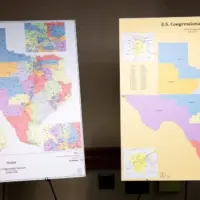
(NEW YORK) — Republican Rep. Michael McCaul, R-Texas, said Sunday he would advise against Ukraine signing the peace proposal that President Donald Trump has offered to end its war with Russia unless more “ironclad” security guarantees are written into the agreement.
“Without that, I would not advise Ukraine to sign this. They can’t sign an agreement like Budapest and then allow Russia to invade again,” McCaul told ABC News’ “This Week” co-anchor Martha Raddatz.
Peace talks continue as American officials are meeting on Sunday with a Ukrainian delegation in Geneva.
The latest proposal, which was presented to Kyiv Thursday, was drafted by U.S. special envoy Steve Witkoff with input from Secretary of State Marco Rubio, according to the White House. But it was done in coordination with Moscow and includes conditions that are widely seen as being in Russia’s favor, prompting concerns within Ukraine and Europe that it would effectively be a capitulation.
Among the concessions Ukraine is being asked to make in this proposal: limiting its military to 600,000 personnel, agreeing to never join NATO, and forcing Kyiv to give up territory in the east, including areas not yet occupied by Russia.
McCaul, a top member and former chairman of the House Foreign Affairs Committee, said he believes there’s “flexibility” in Trump’s 28-point plan and that his Thursday deadline for Ukrainian President Volodymyr Zelenskyy to make a decision or risk losing American support to end Russia’s nearly four-year war in shouldn’t be a “take it or leave it” situation.
“I think there’s flexibility. I do know that Rubio said within the next 72 hours, we all know a great deal about whether this goes forward or not,” McCaul said. “It’s always he who has stated, the president, that he sees this as a vision, but not a done deal. So it should not be take it or leave it.”
Democratic Sen. Mark Warner, who also appeared on “This Week,” called the plan “awful.”
“My reaction is it’s awful. It would make Neville Chamberlain’s giving in to Hitler outside of World War II looks strong in comparison,” Warner said, arguing the plan is “almost a series of Russian talking points.
“This would be a complete capitulation and that’s why I think you’re hearing from Congress, both sides, people pushing back … It feels like this was a plan that they took almost entirely from the Russians,” Warner said.
Warner, the top Democrat on the Senate Intelligence Committee, said he hopes this is merely a new starting point.
“To have this proposal forced upon them, I think as Zelenskyy said, Ukrainian dignity versus giving up a partner, I would hope the president would not be so weak as to try to force this plan on the Ukrainian and our other allies,” Warner said. “I think the president is seeing this one-sided plan kind of blow up in his face with pushback from the Ukrainians, from the Europeans, from members of Congress of his own party. And my hope is, he’ll come back and be a bit more reasonable.”
Here are more highlights from McCaul’s interview:
On the Russia-Ukraine peace proposal’s prospects
McCaul: The inception of this agreement seems to have come from a [Trump special envoy Steve] Witkoff discussion with the Russian [Kirill] Dmitriev, who heads up the Russian sovereign wealth fund. It’s unclear how much input was given by either Ukraine or our European allies. Rubio did say on the call that this is a United States document with input from Ukraine and from Russia. About 80% of this deal, I think, they’re going to find agreement with as they go to Geneva. The problem is going to be the 20% of really tough items to negotiate.
On the deal’s Thanksgiving deadline
McCaul: On all party sides, except the Russians I haven’t talked to, is that this is an ongoing negotiation process, so they’re really getting it started. What they — the way the White House described it last night was we had to start putting this pen to paper so we could get something accomplished. I do think it’s in Ukraine’s best interest to get something done now, rather than a year later, the military industrial war machine of Russia has now risen to a level that is very difficult now for Ukraine.
Here are more highlights from Warner’s interview:
On Trump saying he’ll speak with Venezuela’s president
Raddatz: Trump says he’ll be speaking with Venezuelan President Nicolas Maduro. Do you think that is a good idea? And what can you say to him?
Warner: I think the notion that Trump says, “We’ll talk to anyone” I think that is — I’m not going to critique him on that. If there’s a way to push Maduro out. Remember, our government and 50 other governments, most all of Western Europe, don’t — don’t recognize the Maduro government as legitimate, but it does not feel like there is an organized planning coming down again — America-only without any of our other allies in South America or Central America again, seems not the right approach.
On whether U.S. will go to war with Venezuela
Raddatz: Do you think he wants to go to war with Venezuela? Do you think he wants to —
Warner: I don’t know. I don’t know. I think he is trying to put outside pressure on Maduro, but by doing it in this kind of America-only approach, again, without giving any sign to, I think, even in the Republicans on the Hill, what his plans are, I’m not sure is the right way to do foreign policy. You couple this Venezuela misadventure with this desertion of Ukraine and this is not making America safer and it’s sure not putting America first.
Copyright © 2025, ABC Audio. All rights reserved.















